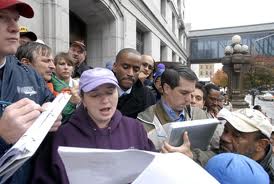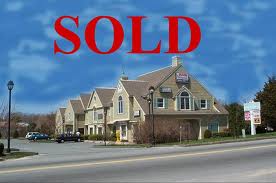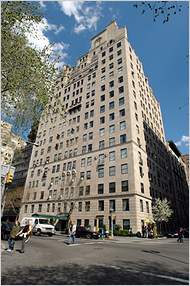Don't Count on the Second Mortgage Holder to Bring You Current
 Let's suppose you are considering a first mortgage investment of $100,000 on the purchase of a $200,000 little office building. The buyer is putting $40,000 down (20% of the purchase price), and the seller is carrying back a second mortgage of $60,000 (30% of the purchase price). A first mortgage loan of only 50% loan-to-value sounds attractive; but keep in mind that if the deal goes bad, second mortgage holders rarely bring first mortgages current, and if they do, they almost never keep up the payments for long.
Let's suppose you are considering a first mortgage investment of $100,000 on the purchase of a $200,000 little office building. The buyer is putting $40,000 down (20% of the purchase price), and the seller is carrying back a second mortgage of $60,000 (30% of the purchase price). A first mortgage loan of only 50% loan-to-value sounds attractive; but keep in mind that if the deal goes bad, second mortgage holders rarely bring first mortgages current, and if they do, they almost never keep up the payments for long.
You will recall that if the borrower defaults, the second mortgage holder will (almost always) be wiped out if the first mortgage goes to foreclosure. This is true even when there is a lot of equity in the property. Why? Because (almost) no one ever bids at foreclosure sales. Therefore, the only way for the second mortgage holder to protect himself is to bring the first mortgage current and to keep the first mortgage current while the second mortgage forecloses.
In real life, this almost never happens. In fact, I have owned Blackburne & Sons, a hard money lender, for over 30 years, and I can think of very few cases where a second mortgage holder actually brought our first mortgage current. More importantly, there has not been one case in over 30 years where a second mortgage holder has kept our loan current while he foreclosed himself. Not one.
The wise first mortgage investor will therefore never rely on a second mortgage holder to bring his loan current.
This is not an offer to sell first mortgage investments. An offer is made only through an Offering Circular. Investing in first trust deeds and first mortgages involves substantial risk. Please be sure to carefully review the Risk Factors section of the Offering Circular before investing. A substantial and prolonged decline in real estate value is possible.
Please click here for more information on first mortgage investments.

 When a trustee holds a Trustee's Sale (foreclosure sale) or when a sheriff holds a Sheriff's Sale, the reality is that almost no one ever bids at these sales. Even if a lender is entering a credit bid of just $600,000 on a property clearly worth $1 million, 95% of the time no one else will bid more than $600,000. I have been the owner of
When a trustee holds a Trustee's Sale (foreclosure sale) or when a sheriff holds a Sheriff's Sale, the reality is that almost no one ever bids at these sales. Even if a lender is entering a credit bid of just $600,000 on a property clearly worth $1 million, 95% of the time no one else will bid more than $600,000. I have been the owner of 
 All else being equal, a good argument can be made that
All else being equal, a good argument can be made that  Or is it? Consider the following scenario: An office building legitimately appraised for $1 million in 2006. A bank made a $700,000 loan against it. In late 2007 the Great Recession started. Commercial real estate fell by 40%, dropping the value of the building to just $600,000. By early 2008, the tenant defaulted on his lease and moved out. The investor/owner tried to carry the mortgage payment on a vacant building out of his personal savings for several months, only to finally capitulate and default in late 2008. By mid-2009 the bank completed its foreclosure.
Or is it? Consider the following scenario: An office building legitimately appraised for $1 million in 2006. A bank made a $700,000 loan against it. In late 2007 the Great Recession started. Commercial real estate fell by 40%, dropping the value of the building to just $600,000. By early 2008, the tenant defaulted on his lease and moved out. The investor/owner tried to carry the mortgage payment on a vacant building out of his personal savings for several months, only to finally capitulate and default in late 2008. By mid-2009 the bank completed its foreclosure. Six years ago I was walking along Park Avenue in New York City with a wise, old veteran of the mortgage wars. He pointed to a nice apartment building and commented, "Did you know that Jackie Onassis, the former wife of John F. Kennedy, used to rent an apartment in that building?" "Rent?" I asked my buddy, "Did you just say rent? Jackie Onassis was once one of the richest women in the entire world, and she was just renting? She couldn't afford to buy a condo in the building?"
Six years ago I was walking along Park Avenue in New York City with a wise, old veteran of the mortgage wars. He pointed to a nice apartment building and commented, "Did you know that Jackie Onassis, the former wife of John F. Kennedy, used to rent an apartment in that building?" "Rent?" I asked my buddy, "Did you just say rent? Jackie Onassis was once one of the richest women in the entire world, and she was just renting? She couldn't afford to buy a condo in the building?"
